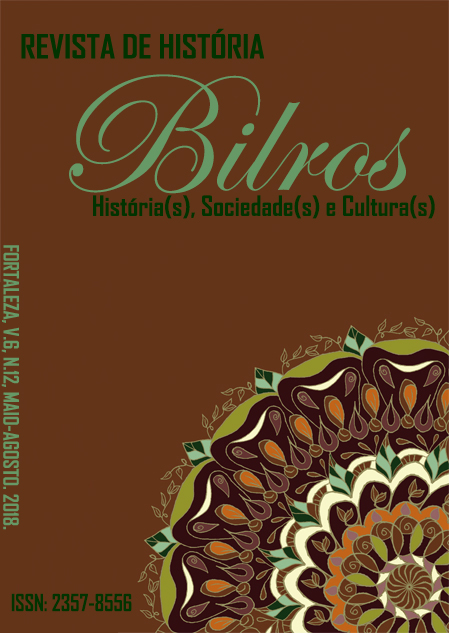O JORNAL CENTRO ACADEMICO DO RIO DE JANEIRO
UM CENTRO DIFUSOR DE IDEIAS REPUBLICANAS NO SÉCULO XIX (1872-1873)
Palabras clave:
Jornal Centro Academico, RepublicanismoResumen
O objetivo do trabalho é analisar o jornal Centro Academico , publicado entre 1872 e 1873 por alunos da Faculdade de Medicina e Cirurgia do Rio de Janeiro e por alunos da Escola Central de Engenharia do Exército, como centro difusor de ideias republicanas durante o século XIX. Esse periódico diagnosticava o Império Brasileiro e, a partir disso, apresentava um prognóstico para o futuro. O Centro Academico foi um dos primeiros jornais publicados no país durante o século XIX a defender explicitamente a República e a manter nos seus quadros defensores dessa forma de governo. O trabalho mapeia os editores do jornal e os autores que escreviam os artigos, a fim de melhor compreender as temáticas discutidas e a maneira como cada autor pensa o republicanismo. Nesse jornal podem ser captados os principais pontos do diagnóstico que os alunos faziam do Império brasileiro, a saber: a falta de legitimidade da monarquia para concretizar reformas em diversas áreas necessárias ao desenvolvimento do país, sobretudo aquelas relativas ao ensino superior, que se encontrava ministrado em poucas instituições que eram, mesmo assim, mal distribuídas geograficamente e com baixa qualidade na formação ofertada. O jornal indica que a única solução para esses problemas apontados é a adoção da República como forma de governo.
Publicado
Cómo citar
Número
Sección
Licencia
Derechos de autor 2022 Paulo Vitor Sauerbronn Airaghi

Esta obra está bajo una licencia internacional Creative Commons Atribución-NoComercial 4.0.






